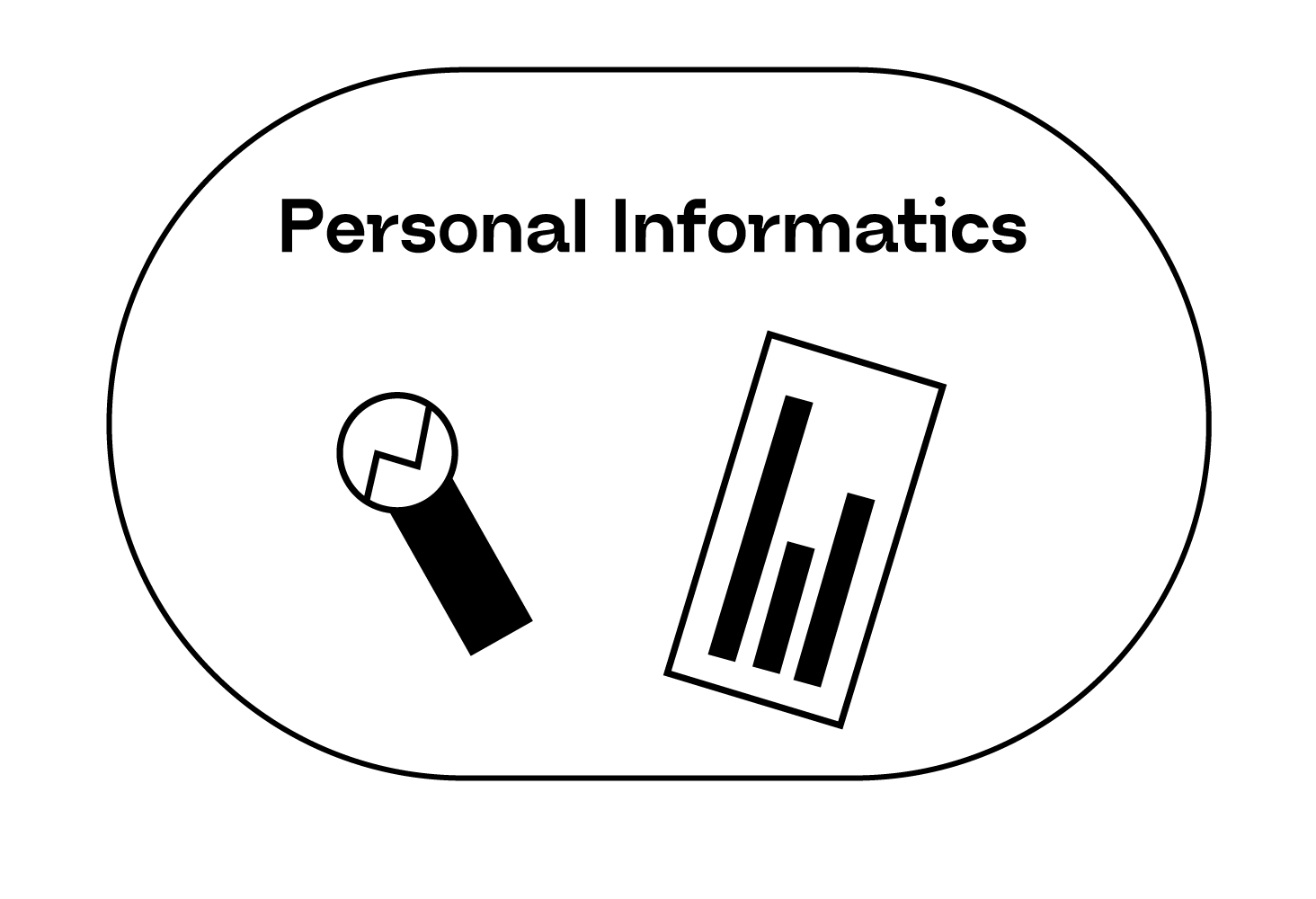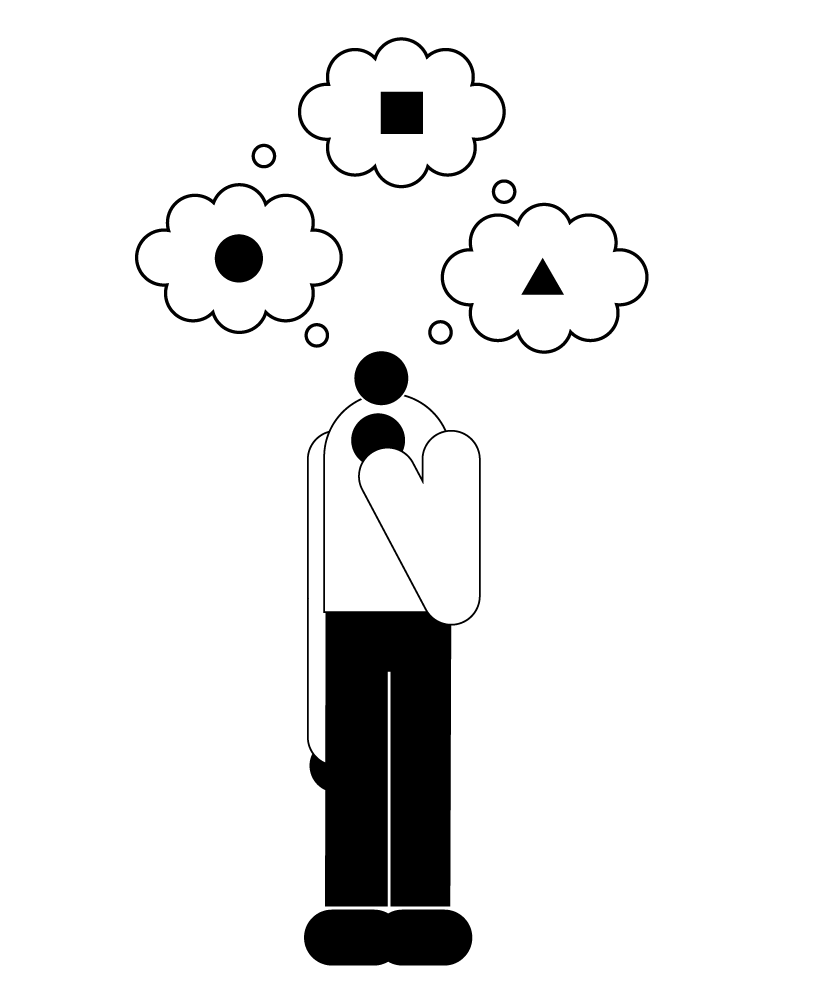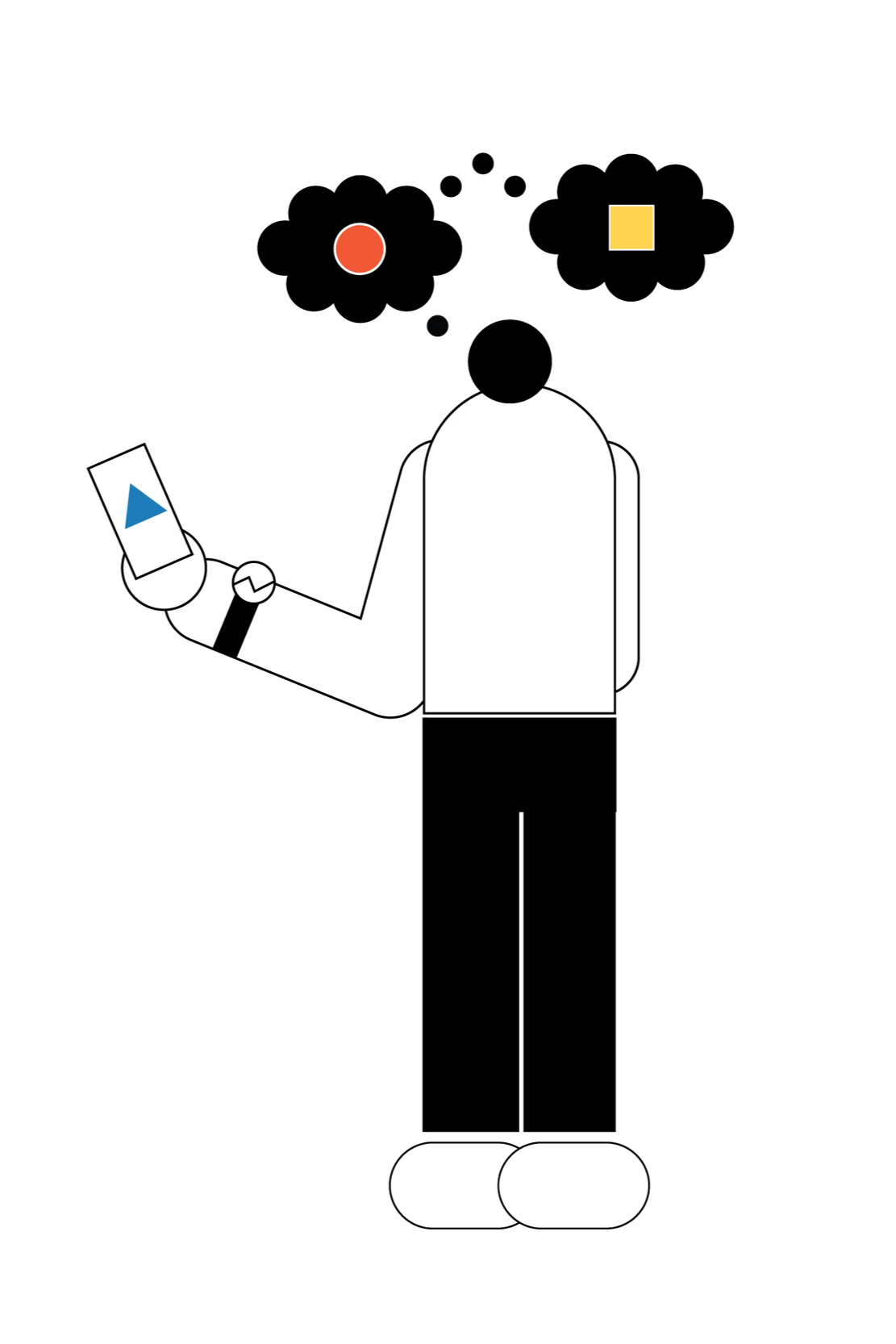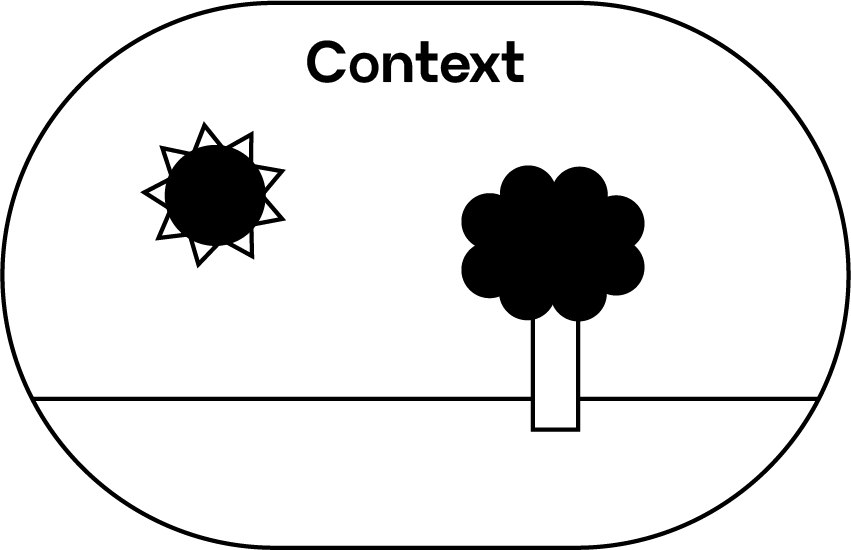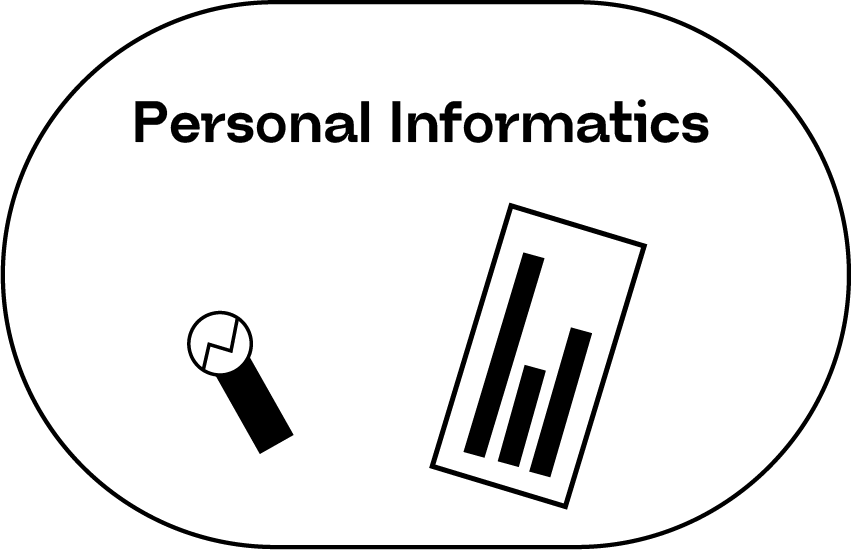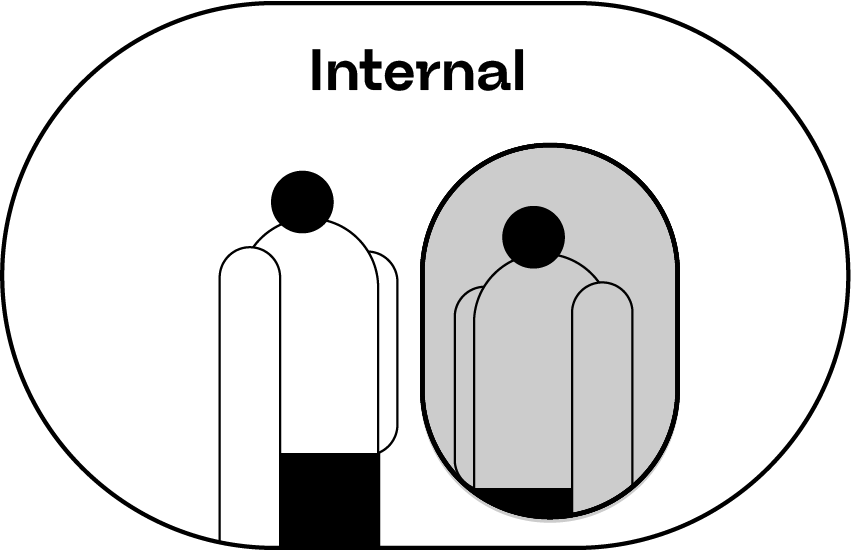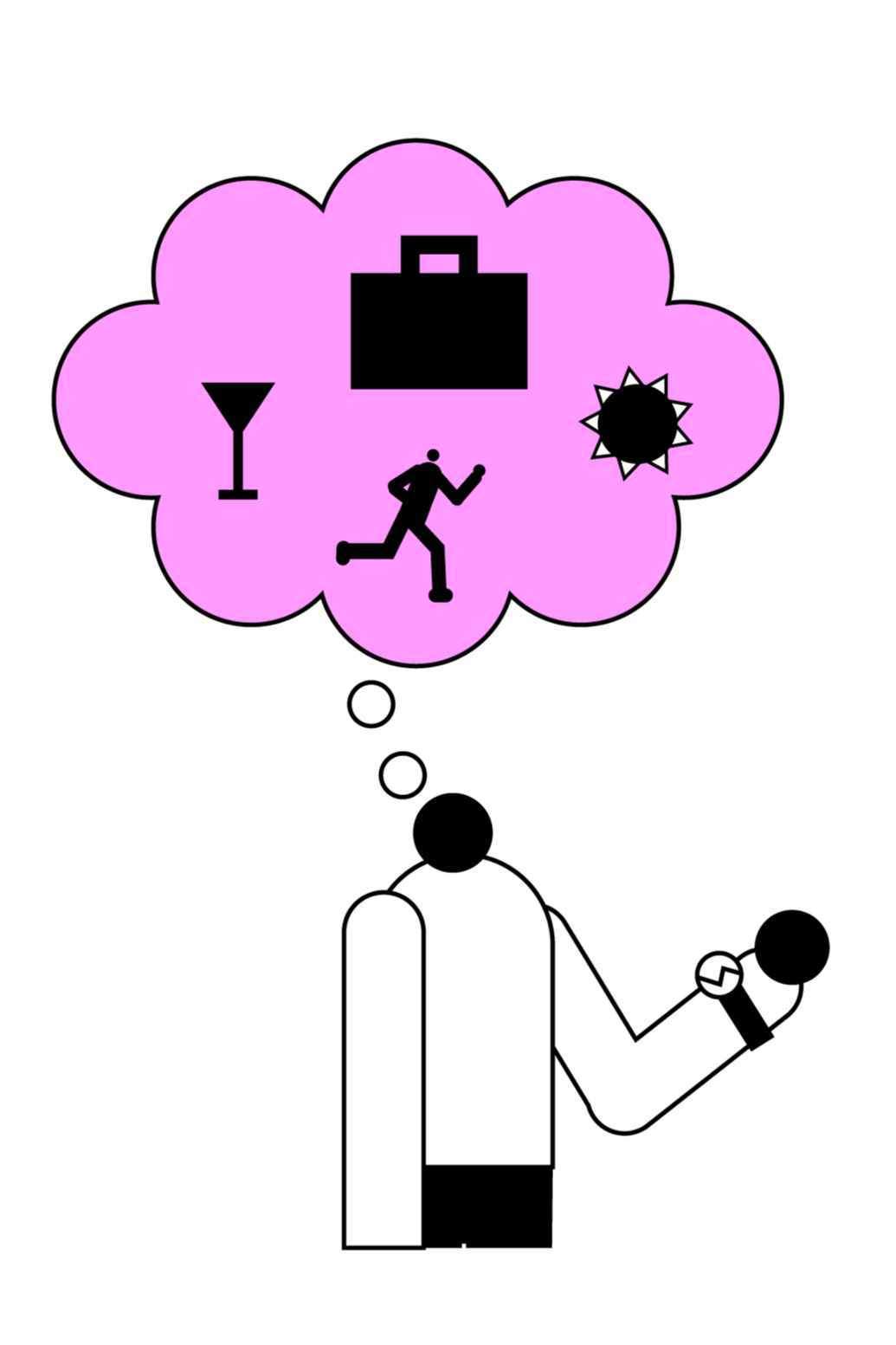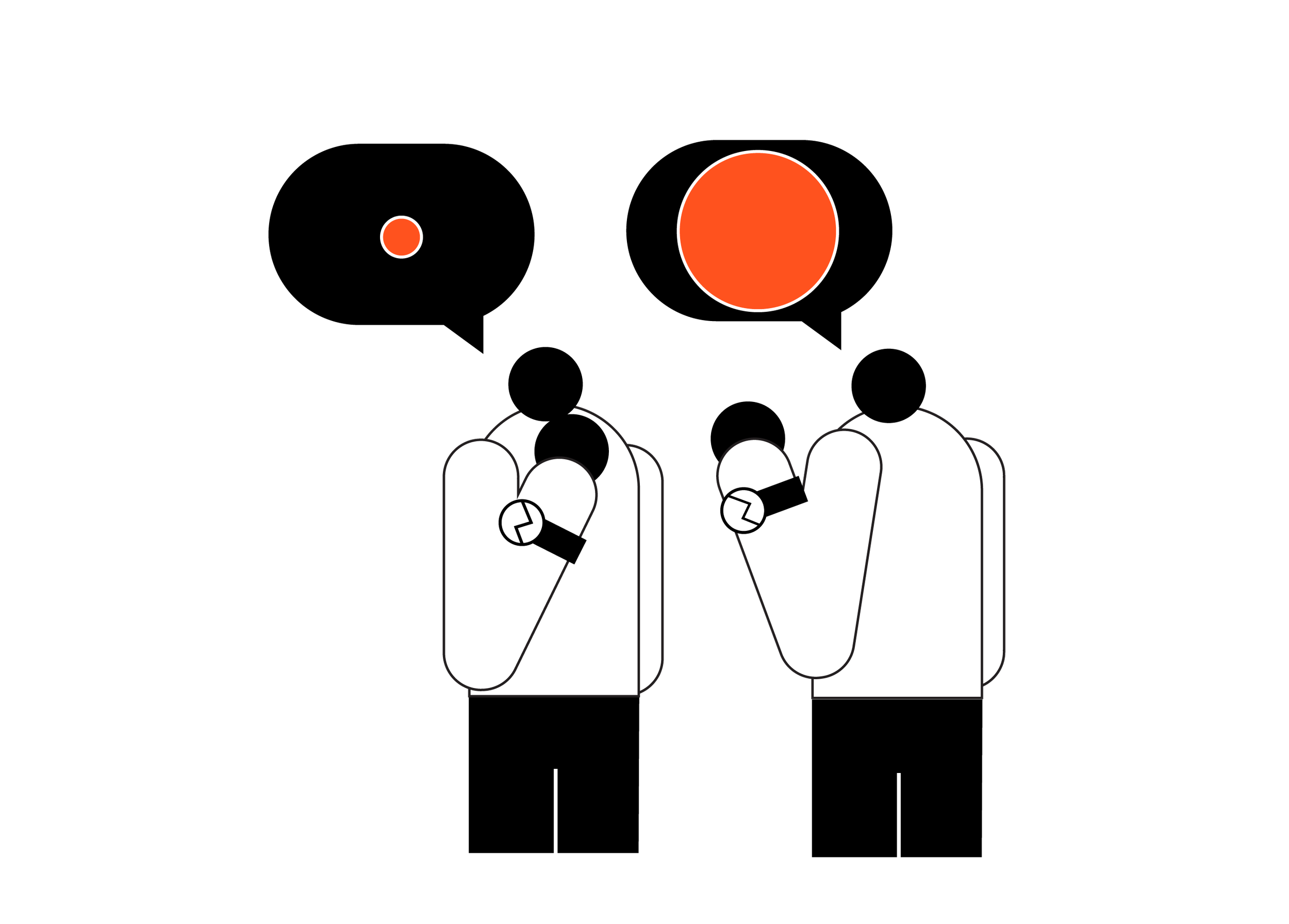Changing Health Goals with Personal Informatics
(i.e., personal trackers)
As personal trackers are being used over lifetimes, people’s motivations, values, abilities, and contexts change - and therefore their goals change as well.
How should personal trackers support people as they go through these changes?
This made us want to understand:
Background
Personal informatics
Tools (e.g., a smartwatch or app) that help track people their health behaviors, to learn about themselves and change health behaviors
Goal Setting
One of the most common techniques to support people in changing health behaviors
Goals evolve over time
As people engage in tracking and managing their health, their goals evolve in response to changing wants, needs, values, and challenges.
These changes stem from various sources, such as changes in circumstances, feelings, capabilities, or major life transitions.
If goals do not change:
They can become misaligned with people’s abilities, contexts, and motivations
This misalignment can lower confidence, hurt self-perception, and reduce long-term engagement with the tool and with personal goals
To understand how to support goal change we wanted to find out:
What makes people change their health goals?
How do personal trackers influence and support making decisions to change goals?
How did we conduct the study?
Survey: N=80
Survey with people who have recently changed health goals
Interviews: N=10
In-depth interviews with 10 of those participants
Conducting In-Depth Interviews
What: To conduct the interviews and support people speaking about their goal change experiences, a timeline activity was used to map out people’s goals overtime on a Miroboard.
How: We start with an overview, followed by layering information, such as specific events or learning new information, to understand interactions that affected their goals
Why: By layering participants experiences in this way, this can deepen reflection on experiences and the series of events that affected their goals.
Analysis
A thematic analysis was conducted using Atlas.ti.
People’s goals were affected by four actors (i.e., who or what influenced people’s goals) through five factors (i.e., what or how goals were influenced).
Actors
who or what influenced people’s goals
Factors
what or how goals were influenced
There is an interplay in how the actors and factors affect goals. Goals embody many experiences such as how:
Personal trackers reflect data
Social circles role model behavior
Context can cause a change in routines
Internal motivations are affected by achieving a goal
Often, it is not just one factor or actor to affect a goal.
For instance look at the last quote: the participant’s goal was influenced by his wife who is an experienced marathon runner believing in him and supporting him in planning to his goal, which also related to him to believing in himself.
Interplay between actors and factors
What does this mean for personal trackers supporting goal change?
The Ebb and Flow of Goal Importance
Responsibilities, life events, and other contextual actors can take precedence over health goals
Changing priorities highlighted tensions between goals
Design Implications
-
Accommodate people’s changing priorities and life events (even through goal disengagement)
-
Connect goals to outcomes that are important to people (e.g., “Being more physically active means I role model healthy behaviors for my family”)
-
Highlighting creating routines people can commit to. For example rather than 10,000 steps a day to walking 15 minutes after every meal.
-
Positive framings towards long-term healthy lifestyles can help make long-term changes to health.
Vulnerability & Resilience During Goal Change
Goal change is a non-linear and complex process, with goals often paused, changed, and abandoned due to life changes, setbacks, and goal failure.
These transitions are particularly vulnerable moments and our participants navigated such moments differently.
Design Implications
-
Highlight achievements and frame data towards progress on goals (even during lapses) to fuel positive mindsets and confidence on goals
-
Social circles also helped in supporting feelings of self-efficacy towards goals by cheering on and making goals be more than just about achievement
-
Alternatively, frame goal achievements as casual and as “just the fun of it”, while also being committed to them, instead of requiring a specific quantitative achievement
Role of Social Actors
Social actors play a crucial role in goal change
People discuss goals, engage in planning, share doubts, receive reassurance, and have fun with their social circles
However, a significant insight from our study is the underutilization of tracking for seeking and providing social support during goal change.
Design Implications
-
Integrate collaborative reflection features for sharing knowledge, discussing both successes and challenges
-
Support further connection and facilitate shared goal setting activities to increase goal enjoyment and commitment
-
Enhance group reflection on collective health changes. For example increasing steps count or a new yoga class.

